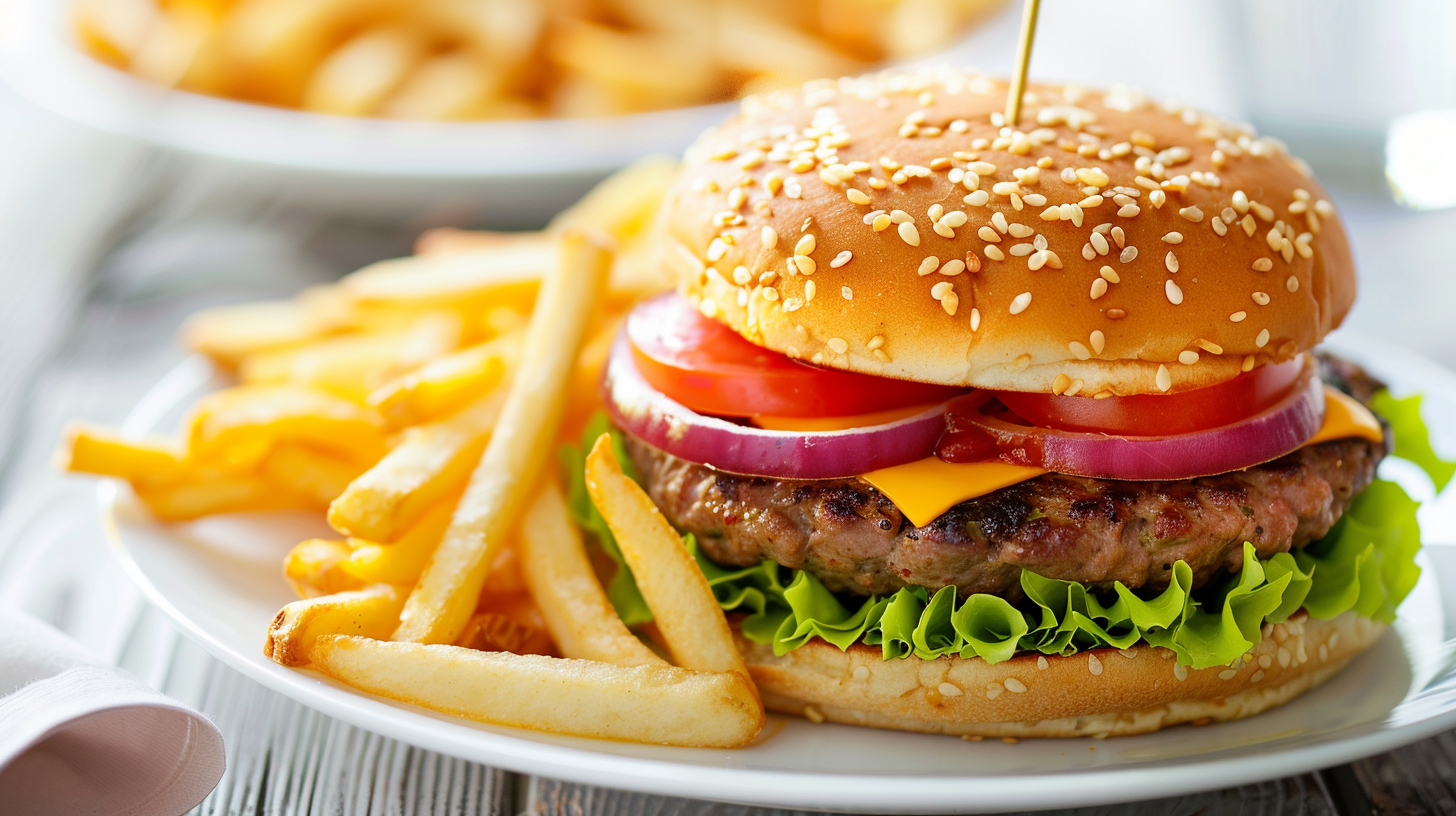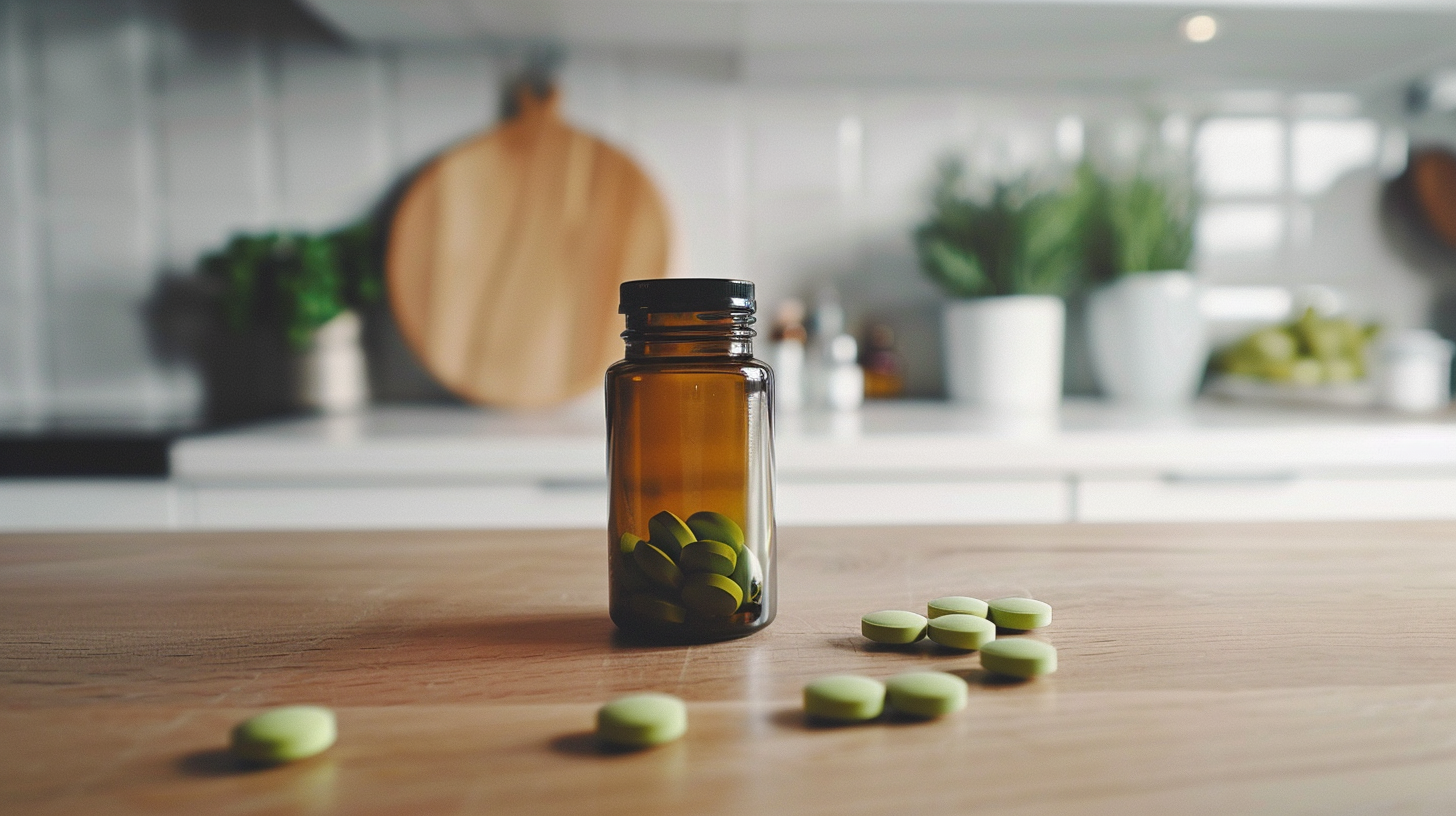Do you often feel uncomfortable, bloated, and in pain after eating? Have you ever wondered what your body is trying to tell you with these symptoms? Understanding bloating after eating is the key to finding relief and improving your overall well-being.
Many people consider bloating a normal part of digestion, but it can actually be a sign of underlying issues that need to be addressed. By deciphering the messages your body is sending, you can uncover the causes, identify the symptoms, and discover effective remedies and prevention strategies for bloating after eating.
In this comprehensive guide, we will explore the common causes of bloating, delve into the symptoms, and provide you with practical tips to reduce bloating and alleviate discomfort. Whether you’re dealing with occasional bloating or chronic symptoms, this article will empower you to take control of your digestive health and live a more comfortable life after meals.
Key Takeaways:
- Understanding the causes of bloating after eating is essential for finding effective remedies and prevention strategies.
- Bloating is not a normal part of digestion and may indicate underlying issues that need to be addressed.
- Recognizing the symptoms of bloating can help you identify the problem and seek appropriate treatment.
- Dietary and lifestyle changes play a significant role in reducing bloating and improving digestive health.
- Seeking professional help is important if bloating persists or is accompanied by other concerning symptoms.

What is Bloating After Eating?
Bloating after eating refers to the uncomfortable sensation of fullness and swelling in the abdomen that occurs after a meal. This condition is characterized by an increased girth and a feeling of tightness or pressure in the stomach area. Understanding bloating after eating is crucial for effectively managing and alleviating this distressing symptom.
“Bloating after eating refers to the uncomfortable sensation of fullness and swelling in the abdomen that occurs after a meal.”
Bloating after eating can leave you feeling physically uncomfortable, making it difficult to engage in daily activities. It is commonly caused by excess gas production, distension of the stomach or intestines, or an accumulation of fluids in the abdominal cavity. Factors such as diet, eating habits, gastrointestinal disorders, and stress can contribute to the occurrence of bloating after eating.
Physical discomfort experienced with bloating after eating
When you experience bloating after eating, you may notice the following symptoms:
- Abdominal bloating and distension
- Feeling of fullness or tightness in the stomach
- Excessive burping or flatulence
- Abdominal pain or discomfort
- Indigestion or heartburn
These symptoms can vary in severity and duration, depending on the underlying causes. It’s important to pay attention to these signals from your body as they can provide valuable insights into your digestive health.
“When you experience bloating after eating, you may notice symptoms such as abdominal bloating and distension, feeling of fullness or tightness in the stomach, excessive burping or flatulence, abdominal pain or discomfort, and indigestion or heartburn.”
To effectively manage bloating after eating, it’s essential to identify the factors that contribute to its occurrence. By understanding the causes and symptoms of bloating after eating, you can take proactive steps to prevent and alleviate this uncomfortable condition. The following section will explore the common causes of bloating after eating in more detail.
| Factors contributing to bloating after eating | Explanation |
|---|---|
| Dietary choices | Poor food combinations, high intake of gas-producing foods. |
| Overeating | Consuming large portions can lead to stomach distension. |
| Food intolerances | Individual sensitivities to certain foods, such as lactose or gluten. |
| Slow digestion | Impaired intestinal motility or delayed gastric emptying. |
| Gastrointestinal disorders | Conditions like irritable bowel syndrome (IBS) or gastroesophageal reflux disease (GERD). |
| Stress and anxiety | Psychological factors can affect digestion and contribute to bloating. |
Common Causes of Bloating After Eating
Bloating after eating can be uncomfortable and disruptive to your daily routine. Understanding the common causes of bloating can help you identify the culprits and make necessary changes to alleviate this discomfort. Several factors can contribute to bloating, including:
1. Overeating:
Overeating is a common cause of bloating after meals. Consuming large portions can put excess pressure on your stomach, leading to distention and discomfort. When you overeat, your stomach stretches, causing it to expand and trigger bloating sensations.
2. Food Intolerances:
Food intolerances, such as lactose or gluten intolerance, can also lead to bloating after eating certain foods. If you have an intolerance, your body may have difficulty digesting specific substances, resulting in bloating and other digestive symptoms.
3. Digestive Disorders:
Various digestive disorders can contribute to bloating after eating. Conditions such as irritable bowel syndrome (IBS) or inflammatory bowel disease (IBD) can disrupt normal digestion, leading to bloating, gas, and abdominal discomfort.
4. Gas Production:
Excess gas production in the digestive system is another common cause of post-meal bloating. This can occur when bacteria in the gut ferment undigested carbohydrates, leading to the release of gas and bloating.
5. Slow Digestion:
Slow digestion can result in food sitting in the stomach and intestines for an extended period, causing bloating. Factors such as inadequate chewing, lack of physical activity, and certain medications can slow down the digestive process and contribute to bloating after eating.
By understanding these common causes of bloating after eating, you can take steps to prevent or manage this uncomfortable condition. Making dietary modifications, practicing portion control, and seeking medical advice when necessary can help relieve bloating and improve your overall digestive health.

Identifying Bloating Symptoms
Recognizing the symptoms of bloating after eating is essential for understanding and effectively managing this uncomfortable condition. By familiarizing yourself with the common signs of bloating, you can take proactive steps towards finding relief. Here are some key symptoms to watch out for:
- Abdominal Distention: Bloating often leads to a visibly swollen or distended abdomen.
- Abdominal Discomfort: You may experience a sense of fullness, tightness, or pressure in the abdomen.
- Excessive Gas: Bloating is often accompanied by increased gas production, leading to frequent burping or flatulence.
- Belching: Uncontrollable belching or burping is a common symptom of bloating after eating.
- Stomach Pain: Cramping, sharp, or dull pain in the stomach region is frequently associated with bloating.
If you regularly experience one or more of these symptoms after eating, it’s likely that bloating is the culprit. Monitoring and identifying these signs can provide important insights into your digestive health and inform your approach to managing bloating.
Expert Quote:
“Being able to identify the specific symptoms of bloating after eating is crucial for effective management and treatment. By paying attention to your body’s signals, you can better understand the underlying causes and take appropriate steps towards relief.”
Remember, everyone’s body is unique, and the severity and frequency of bloating symptoms may vary. It’s essential to listen to your body and seek professional guidance if your symptoms persist or worsen despite addressing potential triggers.
Effective Bloating Remedies
If you’re experiencing bloating after eating, there are various remedies and relief strategies that can help alleviate your symptoms. By making simple lifestyle changes, adjusting your diet, and trying natural remedies, you can find relief from bloating and improve your overall digestion.
Lifestyle Changes:
- Eat smaller, more frequent meals to prevent overeating and promote better digestion.
- Slow down and chew your food thoroughly to aid in proper digestion and reduce bloating.
- Stay physically active, as regular exercise can help stimulate your digestive system and prevent bloating.
- Manage stress levels through activities like yoga, meditation, or deep breathing exercises, as stress can contribute to digestive issues and bloating.
- Stay hydrated by drinking plenty of water throughout the day, as dehydration can worsen bloating. Aim for at least 8 glasses of water a day.
Dietary Adjustments:
- Avoid foods known to cause bloating, such as beans, lentils, cruciferous vegetables (like broccoli and cabbage), carbonated drinks, and fatty or fried foods.
- Include foods that can help reduce bloating, such as ginger, peppermint, chamomile, and fennel. These natural remedies have been shown to have anti-inflammatory properties and aid in digestion.
- Consider trying a low-FODMAP diet, which eliminates certain fermentable carbohydrates that can contribute to bloating and other digestive symptoms.
Natural Remedies:
- Herbal teas like peppermint or chamomile can soothe the digestive system and relieve bloating.
- Probiotics, either through supplements or fermented foods like yogurt, sauerkraut, or kimchi, can help restore a healthy balance of gut bacteria and improve digestion.
- Activated charcoal supplements may help absorb excess gas in the digestive system and alleviate bloating.
Remember, the effectiveness of these remedies can vary from person to person, so it may take some trial and error to find what works best for you. If you continue to experience severe or persistent bloating, it’s essential to consult a healthcare professional for a proper diagnosis and treatment.
Strategies for Bloating Prevention
To manage bloating after eating, prevention is key. By implementing practical strategies, you can reduce the likelihood of experiencing bloating discomfort. Here are some effective prevention methods you can incorporate into your daily routine:
Mindful Eating
Practicing mindful eating can help reduce bloating after meals. Take the time to chew your food thoroughly and savor each bite. Be present and attentive while eating, focusing on the flavors and textures of your food. This mindful approach can aid digestion and prevent overeating, which often leads to bloating.
Portion Control
Controlling your portion sizes is another important strategy for bloating prevention. Be mindful of your body’s hunger and fullness cues and avoid overeating. Consider using smaller plates or bowls to help manage your portion sizes and prevent excessive food consumption.
Maintaining a Healthy Lifestyle
Leading a healthy lifestyle can significantly contribute to bloating prevention. Regular exercise helps stimulate digestion and promotes overall gut health. Additionally, managing stress levels through relaxation techniques, such as meditation or deep breathing exercises, can prevent stress-related bloating. Lastly, staying hydrated by drinking an adequate amount of water throughout the day can aid digestion and reduce bloating.
By incorporating these strategies into your daily routine, you can effectively prevent bloating after eating and maintain digestive comfort.

Exploring Bloating Treatment Options
If you are experiencing severe or chronic bloating after eating, it may be necessary to seek medical treatment for relief. There are various treatment options available to address this discomfort and improve your quality of life. Medical interventions can help alleviate bloating symptoms and address the underlying causes of your condition.
Prescription Medications: In some cases, your healthcare provider may prescribe medications to manage bloating. These medications can help regulate digestion, reduce inflammation, and alleviate bloating symptoms. Examples of commonly prescribed medications for bloating include:
- Antispasmodics: These medications relax the muscles in the digestive tract, helping to relieve bloating and abdominal pain.
- Prokinetics: Prokinetic medications stimulate the muscles of the digestive tract, promoting proper movement and reducing bloating.
Therapies: There are several therapeutic approaches that can be effective in treating bloating after eating. These therapies aim to address underlying causes and improve digestive function. Some commonly used therapies include:
- Behavioral Therapy: Behavioral therapy can help identify and address any psychological or emotional factors that may contribute to bloating. It focuses on managing stress, practicing relaxation techniques, and developing healthy coping mechanisms.
- Gut-Directed Hypnotherapy: This therapy uses hypnosis to help manage symptoms of bloating by modifying the brain-gut connection and reducing sensitivity in the digestive system.
- Physical Therapy: Certain physical therapy techniques, such as abdominal massage and exercises, can help improve digestion and reduce bloating.
Other Treatment Options: In addition to prescription medications and therapies, there are other treatment options that may be recommended depending on the underlying cause of your bloating. These can include:
- Elimination Diets: If food intolerances or allergies are causing your bloating, an elimination diet can help identify and eliminate trigger foods from your diet.
- Probiotics: Probiotics are beneficial bacteria that can help improve gut health and digestion. Your healthcare provider may recommend specific strains to alleviate bloating and restore balance in your digestive system.
It’s important to consult with a healthcare professional to determine the most appropriate treatment options for your specific situation. They can assess your symptoms, medical history, and perform any necessary tests to diagnose the underlying cause of your bloating and guide your treatment plan.
The Role of Diet in Bloating
Diet plays a crucial role in managing bloating after eating. By making thoughtful choices about what you eat, you can minimize bloating and promote better digestive health. Here, we will explore which foods to avoid and which to incorporate into a bloating-friendly diet plan. Additionally, we will provide you with some helpful dietary tips to reduce bloating.
Foods to Avoid for a Bloating-Friendly Diet
When it comes to managing bloating, there are certain foods that you should try to avoid or limit in your diet. These include:
- Carbonated drinks: The bubbles in carbonated drinks can increase gas and bloating in the digestive system.
- High-fat foods: Greasy and fatty foods can slow down digestion, leading to bloating and discomfort.
- Processed foods: Many processed foods contain artificial additives and preservatives that can cause bloating and digestive issues.
- Salty foods: Foods high in sodium can cause water retention, leading to bloating and puffiness.
- Legumes: Beans, lentils, and other legumes can be difficult to digest for some people, causing bloating and gas.
Foods to Incorporate into a Bloating-Friendly Diet
On the other hand, there are foods that can help alleviate bloating and promote healthy digestion. Consider adding the following to your bloating-friendly diet:
- Fiber-rich foods: Fruits, vegetables, whole grains, and legumes can help regulate digestion and prevent constipation, reducing the risk of bloating.
- Probiotic-rich foods: Foods like yogurt, kefir, sauerkraut, and kimchi contain beneficial bacteria that support a healthy gut and may reduce bloating.
- Ginger: Known for its anti-inflammatory properties, ginger can help soothe the digestive system and relieve bloating.
- Peppermint: Peppermint tea or peppermint oil can help relax the muscles of the gastrointestinal tract, reducing bloating and discomfort.
- Water: Staying hydrated is important for proper digestion. Drinking enough water can help prevent constipation and reduce bloating.
Remember, everyone’s body is unique, and what works for one person may not work for another. It’s important to listen to your body and make adjustments to your diet based on your individual needs and tolerances.
| Foods to Avoid | Foods to Incorporate |
|---|---|
| Carbonated drinks | Fiber-rich foods |
| High-fat foods | Probiotic-rich foods |
| Processed foods | Ginger |
| Salty foods | Peppermint |
| Legumes | Water |
Lifestyle Changes to Reduce Bloating
Reducing bloating after eating can be achieved by incorporating certain lifestyle changes into your daily routine. These changes focus on improving digestion, reducing stress levels, and ensuring proper hydration.
Regular Exercise
Engaging in regular physical activity can help improve digestion and reduce bloating. Exercise stimulates the muscles in your digestive system, promoting better movement of food and waste through your body. Aim for at least 30 minutes of moderate-intensity exercise, such as brisk walking or cycling, most days of the week.
Stress Management
Chronic stress can affect your digestive system and contribute to bloating. Find effective stress management techniques that work for you, such as deep breathing exercises, meditation, yoga, or engaging in hobbies and activities you enjoy. Taking time to relax and unwind can help alleviate bloating symptoms.
Adequate Hydration
Drinking enough water throughout the day is essential for proper digestion and reducing bloating. Aim to drink at least 8 cups (64 ounces) of water daily. Staying hydrated helps soften stools, prevents constipation, and promotes regular bowel movements, reducing the likelihood of bloating.
| Lifestyle Changes | Impact on Reducing Bloating |
|---|---|
| Regular Exercise | Improves digestion and promotes better movement of food and waste through the body. |
| Stress Management | Reduces chronic stress, which can affect the digestive system and contribute to bloating. |
| Adequate Hydration | Softens stools, prevents constipation, and promotes regular bowel movements. |
By adopting these lifestyle changes, you can minimize bloating after eating and improve your overall digestive health. Remember to consult with a healthcare professional if your bloating symptoms persist or worsen despite making these changes. They can provide further guidance and recommend appropriate treatment options.
Understanding the Mind-Body Connection
When it comes to bloating after eating, it’s essential to recognize the connection between your mind and body. Emotional and psychological factors can contribute significantly to bloating, and addressing them is key to finding lasting relief.
Stress: Chronic stress can wreak havoc on your digestive system, leading to increased bloating. When you’re stressed, your body releases hormones that can disrupt the normal functioning of your gastrointestinal tract. This disruption can result in bloating and other uncomfortable symptoms. Finding healthy ways to manage and reduce stress, such as practicing mindfulness, yoga, or engaging in hobbies you enjoy, can help alleviate bloating.
Anxiety: Many individuals with anxiety disorders may experience bloating as a physical manifestation of their anxiety. The body’s stress response can trigger gastrointestinal symptoms, including bloating, as a result of heightened nervous system activity. Working with a mental health professional to address anxiety symptoms can help reduce bloating and improve overall well-being.
Food Associations: Our minds can also impact how our bodies react to certain foods. If you have a specific food association with bloating, such as always feeling bloated after eating a particular meal, your body may respond by producing bloating symptoms even if the actual cause is unrelated. Recognizing and challenging these associations can help alleviate bloating and create a healthier relationship with food.
By understanding the mind-body connection and addressing emotional and psychological factors that can contribute to bloating, you can take significant steps toward finding relief. Remember, it’s essential to prioritize your mental and emotional well-being alongside your physical health.
Seeking Professional Help for Bloating
Knowing when to seek professional help for persistent bloating after eating is crucial. While occasional bloating is common and often resolves on its own, persistent or severe bloating may require medical intervention. If bloating symptoms persist for an extended period or significantly impact your daily life, it is advisable to consult a healthcare professional for proper diagnosis and treatment.
Medical professionals, such as gastroenterologists, can help identify any underlying conditions that may be causing or contributing to your bloating. They will perform a comprehensive evaluation of your symptoms, medical history, and may order diagnostic tests, such as bloodwork, imaging, or gastrointestinal testing, to accurately diagnose the cause of your bloating.
Seeking professional help can provide the following benefits:
- Expert diagnosis: Healthcare professionals possess specialized knowledge and experience to accurately diagnose the root cause of your bloating.
- Tailored treatment: Once the cause of your bloating is determined, a healthcare professional can recommend an appropriate treatment plan tailored to your specific needs.
- Guidance and support: Healthcare professionals can provide guidance on managing and alleviating bloating symptoms, offering support throughout your treatment journey.
- Addressing underlying conditions: If an underlying condition, such as irritable bowel syndrome (IBS) or celiac disease, is contributing to your bloating, professional help can ensure proper management of these conditions, leading to long-term symptom relief.
Remember, self-diagnosis and treatment without professional guidance may lead to ineffective or potentially harmful practices. It is essential to seek the advice of a qualified healthcare professional to ensure safe and effective bloating treatment.

Conclusion
Understanding bloating after eating is essential in finding effective strategies for relief. By identifying the causes, recognizing the symptoms, and implementing lifestyle changes and treatments, you can better manage and alleviate bloating after eating.
Bloating after eating can occur due to various factors such as overeating, food intolerances, and digestive disorders. It is important to listen to your body and pay attention to the messages it sends. Recognizing the symptoms of bloating, such as abdominal discomfort, excessive gas, and feeling full, can help you take appropriate action.
Implementing lifestyle changes, such as practicing mindful eating, maintaining a healthy diet, regular exercise, and managing stress, can significantly reduce bloating. Additionally, seeking professional help when needed, such as consulting a healthcare professional for diagnosis and considering medical treatments, can be beneficial in severe or chronic cases of bloating after eating.
Remember, every individual may experience bloating differently, and what works for one person may not work for another. It’s essential to experiment with different strategies and find what works best for you. By being proactive and taking steps to understand and manage bloating, you can improve your overall digestive health and enjoy a more comfortable eating experience.
FAQ
What is bloating after eating?
Bloating after eating refers to the uncomfortable feeling of fullness and tightness in the abdomen that occurs after a meal. It is often accompanied by excessive gas and discomfort.
What are the common causes of bloating after eating?
Bloating after eating can be caused by various factors, including overeating, food intolerances, digestive disorders, gas buildup, and swallowing air.
What are the symptoms of bloating after eating?
Common symptoms of bloating after eating include abdominal swelling, feeling of fullness, excessive gas, burping, abdominal pain or discomfort, and rumbling sounds in the stomach.
What are some effective bloating remedies?
There are several remedies that can help alleviate bloating after eating, such as eating smaller, more frequent meals, avoiding gas-producing foods, incorporating probiotics into your diet, staying hydrated, and practicing relaxation techniques.
How can I prevent bloating after eating?
To prevent bloating after eating, it is important to practice mindful eating, chew food thoroughly, avoid swallowing air, limit carbonated drinks, manage stress levels, and maintain a healthy lifestyle with regular exercise.
Are there any medical treatment options for bloating after eating?
In severe or chronic cases, medical treatment options for bloating after eating may include prescription medications, digestive enzymes, and therapies such as cognitive-behavioral therapy or gut-directed hypnotherapy.
What role does diet play in bloating after eating?
Diet has a significant impact on bloating after eating. Avoiding trigger foods such as beans, lentils, cabbage, broccoli, and carbonated drinks and including fiber-rich foods, probiotics, and ginger can help reduce bloating.
What lifestyle changes can I make to reduce bloating?
Adopting certain lifestyle changes can help reduce bloating, such as regular exercise to promote healthy digestion, stress management techniques, proper hydration, and avoiding smoking and excessive alcohol consumption.
How does the mind-body connection affect bloating after eating?
The mind-body connection plays a role in bloating after eating, as stress, anxiety, and emotional factors can contribute to digestive issues. Addressing these factors through relaxation techniques, therapy, and self-care can help alleviate bloating.
When should I seek professional help for bloating after eating?
If you experience persistent or severe bloating after eating, it is recommended to consult a healthcare professional. They can assess your symptoms, provide an accurate diagnosis, and recommend appropriate treatment options.







